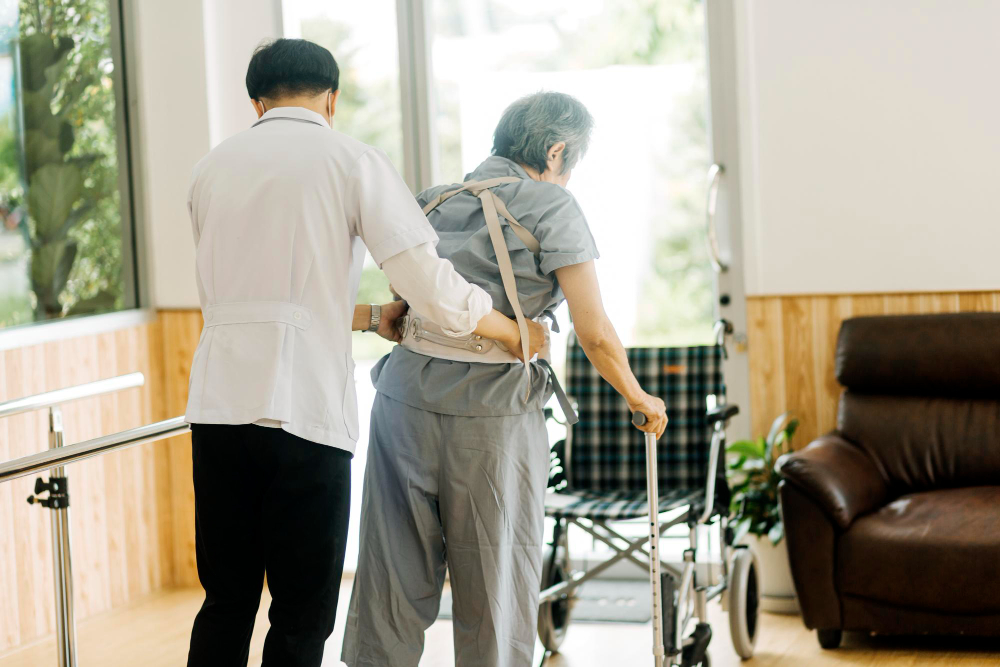Preventing Accidental Falls at Home: A Guide to a Safer Living Space

Accidental falls are one of the leading causes of injury in the home, especially among older adults. Every year, millions of people are hospitalized due to fall-related injuries, many of which could have been prevented with proper precautions and planning.
If you or a loved one is aging in place, recovering from an illness, or living with mobility challenges, taking proactive steps to reduce fall risks is critical. This guide will equip you with practical tips for creating a safer living environment. Whether you reside in or provide home health care in Philadelphia, PA, these strategies can help protect you and your loved ones from accidental falls.
Understanding the Risks of Falls
Falls at home don’t just happen by chance. They are usually caused by a combination of factors, including physical health challenges, environmental hazards, or lack of preventive measures. A few common risk factors include:
- Poor Balance or Mobility Issues
Conditions like arthritis, Parkinson’s disease, and post-surgery recovery can impair coordination and mobility, increasing the likelihood of falls.
- Vision Problems
Reduced vision due to cataracts, glaucoma, or overall aging can make it harder to recognize obstacles in the home.
- Medications
Some medications can cause dizziness, drowsiness, or a sudden drop in blood pressure, all of which significantly elevate the risk of falling.
- Cluttered or Unsafe Environments
Loose rugs, poor lighting, and uneven surfaces are just a few household hazards that can cause trips and stumbles.
Understanding these risks emphasizes why prevention is so vital, especially in the Philadelphia area where the older adult population is on the rise and home health care plays a key role in keeping families safe.
6 Steps to Prevent Falls at Home
1. Remove Clutter and Obstacles
One of the simplest ways to reduce fall risks is to keep the home tidy and free from clutter. Clear pathways of objects such as shoes, toys, or cords. Invest in organization solutions to keep commonly used items like books, remotes, or medications within easy reach.
2. Install Proper Lighting
Good lighting is essential for fall prevention. Dimly lit hallways or shadowy stairs can make it difficult to spot potential hazards. Equip darker areas of the home with brighter light fixtures, and consider installing motion-sensor lights that activate when someone enters the space.
For older adults who may need to use the bathroom at night, a nightlight in hallways and bathrooms can be a simple yet effective solution.
3. Address Flooring Hazards
Slippery surfaces and uneven flooring often contribute to falls. Take the following steps to improve floor safety:
- Remove or secure loose rugs with non-slip backing.
- Repair slippery tiles and uneven floorboards.
- Consider installing non-slip mats in bathrooms and kitchens, where floors are often wet.
If you’re caring for a loved one requiring home health care in Philadelphia, PA, a licensed professional can assist in assessing the home for potential floor safety concerns.
4. Install Assistive Devices
For individuals with limited mobility or balance challenges, the right assistive devices can make daily activities much safer. Common options include:
- Grab Bars: Install these in bathrooms near toilets, bathtubs, and showers for extra support.
- Handrails: Secure handrails on both sides of staircases for added stability.
- Lift Chairs: For areas with steps but no ramp, lift chairs provide a safe way to travel between levels.
Many home health care providers in Philadelphia can recommend specific assistive equipment based on a person’s unique needs.
5. Encourage Physical Activity
Improving strength, balance, and flexibility through physical activity can significantly lower the risk of falls. Activities like yoga, tai chi, or chair exercises help improve muscle tone and balance. For people receiving home health care, it’s essential to consult with a doctor or therapist before starting any new exercises.
6. Regular Health Checkups
Falls can sometimes be linked to underlying medical issues. Regular vision and hearing tests, as well as medication reviews, are crucial in minimizing risks. If a loved one is under the care of a home health aide, they can help monitor for signs of dizziness, impairment, or weakness that may indicate the need for medical attention.
When to Consider Home Health Care
Creating a safer home is a team effort. Family members and caregivers play a significant role in spotting hazards and making necessary changes. But sometimes, having professional help is the best step forward. For individuals who have experienced falls or are at high risk of falling, seeking specialized home health care in Philadelphia, PA can ensure ongoing safety and support.
Home health care providers can:
- Conduct detailed home safety assessments tailored to the individual’s needs.
- Assist with daily tasks like bathing, dressing, and meal preparation, reducing the risk of injury in higher-risk activities.
- Provide physical therapy sessions to improve strength and balance.
- Offer peace of mind by being present during moments that can pose the highest risk to someone living alone.
Partner with Empire Home Health Care Today
The risk of falls is real, but the good news is that they are highly preventable. By implementing the steps above and integrating actionable fall-prevention strategies into your daily life, you can create a safer environment that promotes both independence and well-being.
If you’re looking for reliable support for yourself or a loved one, Empire Home Health Care is here to help. Our highly trained professionals specialize in personalized care solutions designed to provide a safety net for individuals at risk of falls.
Contact Empire Home Health Care today to learn more about how our trusted home health care in Philadelphia, PA can keep you or a loved one safe and secure.